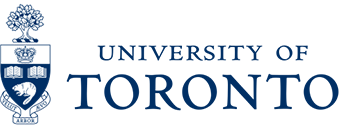What is a clinical fellow?
Clinical fellows are surgeons from Canada or abroad who have attained urology specialist status from their country of origin. Clinical fellowships in urology provide additional advanced level training at tertiary and quaternary teaching hospitals in a broad range of urologic subspecialties, include endourology, minimally-invasive surgery, uro-oncology, infertility, pediatric urology, female urology, and reconstructive urology.
Am I eligible to apply for a clinical fellowship?
Applicants must be a certified urologist in Canada or their country of origin, or have successfully passed MCQEE (www.mcc.ca). All International Medical Graduate fellows must undergo a period of observation of clinical performance lasting 4-12 weeks at University of Toronto hospitals. This period of observation, called PEAP (Pre Entry Assessment Period), is done in the initial 4-12 weeks of the clinical fellowship. Successful completion of the PEAP is mandatory in order to continue in the clinical fellowship.
Do I need to take the Test of English as a Foreign Language (TOEFL) and The Test of Spoken English (TSE) OR the new TOEFL-Ibt ?
International Medical Graduates who graduated from a medical school where the language of instruction was NOT in English must pass The Test of English as a Foreign Language (TOEFL) and The Test of Spoken English (TSE) OR the new TOEFL-Ibt (http://web1.toefl.org/tstgprog01.cfm).
TSE: Minimum score 50
TOEFL: Minimum score 237, or minimum score 580 for paper based test
TOEFL-Ibt: Minimum score of 93 including a minimum score of 24 on the speaking section.
What are the additional requirements if I am a foreign medical graduate?
If you are not a Canadian citizen or permanent resident (landed immigrant), your fellowship is contingent upon your ability to satisfy Canada’s immigration laws and obtaining a “Work Permit” which is required under Canadian Law. The University of Toronto’s Postgraduate Medical Education Office will assist you in obtaining your work permit.
What if I don’t have a license to practice medicine in Ontario?
Fellowship appointments are contingent upon being appropriately licensed to engage in clinical activities in the Province of Ontario and include being granted membership to the College of Physicians and Surgeons of Ontario (CPSO) and malpractice insurance under the Canadian Medical Protective Association (CMPA). For Canadian medical graduates obtaining an OHIP billing number is also helpful. The requirements for Ontario provincial licensure and the registration package for non-North American and North American graduates are available from the College of Physicians and Surgeons of Ontario, 80 College Street, Toronto, Canada M5G 2E2 (Tel: 416 961-1711 Fax: 416 961-3330), or you can download the package from their website at www.cpso.on.ca
Will I be provided with health insurance?
The University Health Insurance Plan (UHIP) is available for all trainees and family members not insured under the Ontario government plan. The UHIP membership fee is typically the responsibility of the trainee. The government plan (Ontario Health Insurance Plan or OHIP) is available to trainees at no additional cost once the three month waiting period has been fulfilled. Family members are not eligible for OHIP.
Where can I learn more about the registration and licensure process?
Registration for all fellows is coordinated through the Post-Graduate Medical Education Office (PGME) of the University of Toronto. More up-to-date information can be obtained by visiting their fellowship website.
Save or Send This Page


